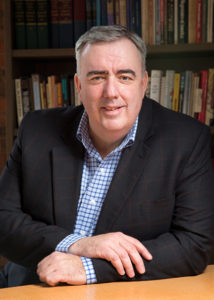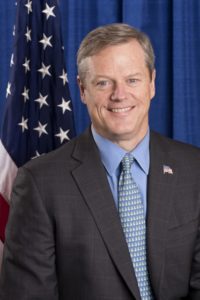Former Boston Police Commissioner Edward Davis to Keynote 2015 Better Government Awards Gala
Former Boston Police Commissioner Edward Davis to Keynote 2015 Better Government Awards Gala
35-Year Law Enforcement Veteran to Address Criminal Justice Reform and Public Safety at June 24th Awards Dinner

 Edward F. Davis, security consultant and former Boston police commissioner, will deliver the keynote address, and Massachusetts Governor Charles D. Baker will provide welcome remarks at Pioneer Institute’s 24th annual Better Government Awards Gala. The event will take place at the Seaport Hotel in Boston on June 24th, 2015.
Edward F. Davis, security consultant and former Boston police commissioner, will deliver the keynote address, and Massachusetts Governor Charles D. Baker will provide welcome remarks at Pioneer Institute’s 24th annual Better Government Awards Gala. The event will take place at the Seaport Hotel in Boston on June 24th, 2015.
“Criminal justice must mean more than taking criminals off the streets,” said Jim Stergios, Executive Director. “Pioneer Institute’s 2015 Better Government Competition focuses on innovative ways to address over-incarceration, recidivism, crime lab processes and other areas of America’s – and Massachusetts’ – troubled criminal justice system.”
The winning proposals will be determined by a judges’ panel of local leaders active in criminal justice issues, including Rev. Dr. Ray Hammond and Suffolk County District Attorney, Dan Conley.
Davis was Boston’s police commissioner from 2006 to 2013 and earned national recognition for his leadership in the aftermath of the 2013 Boston Marathon bombings. During his tenure, Davis emphasized community policing, a strategy of building neighborhood partnerships, and led successful efforts to drive down the City’s violent crime rates.
Previously, Davis spent over a decade as superintendent of the Lowell Police Department. He currently serves as a visiting fellow at Harvard’s Institute of Politics, and holds honorary degrees from Suffolk and Northeastern universities. Davis was also the winner of Pioneer’s 1995 Better Government Competition with the proposal “Community Policing: Success in Lowell”, submitted on behalf of the Lowell Police Department.
The 2015 Better Government Competition attracted nearly 150 proposals from around the country. The entries address a broad spectrum of criminal justice-related issues. Some of the most prominent topics this year were community re-entry initiatives, restorative justice policing models and job training programs for offenders. Many submissions also recommended innovative uses of technology to make correctional systems and law enforcement more effective and cost-efficient.
Entrants include national organizations such as the Brennan Center for Justice, Right on Crime, Justice Research and Statistics Association, and the Manhattan Institute, and in Massachusetts, legislative and executive policymakers as well as non-profits and community groups.
A distinguished panel of judges with backgrounds in law enforcement, religion, business, academia, and journalism will select the winner and four runners-up. Read more about them here.
- James L. Bush, Principal, Bush & Co.
- Daniel F. Conley, Suffolk County District Attorney
- Rev. Dr. Ray Hammond, Pastor, Bethel AME Church and Chairman & Co-Founder of the Ten Point Coalition
- Jeff Jacoby, Op-Ed columnist, The Boston Globe, and syndicated columnist
- John Kingston, III, Chairman and CEO, Sword & Spoon Group
- Tracy Palandjian, CEO of Social Finance US
- Peter N. Ubertaccio, Ph.D., Director, Martin Institute for Law & Society
The winner and runners-up will be announced on May 22, 2015. Winning entries will be published in a compendium to be released at the Better Government Competition awards dinner on June 24, 2015, and distributed to policy makers and opinion leaders.
Since 1991, the Better Government Competition has served as a way to crowdsource powerful new ideas and best approaches to improve public policy. The Competition seeks ideas from experts as well as ordinary citizens to make government more effective and efficient, protect individual liberties and make our communities safer. Implementation of ideas from the competition has saved Massachusetts taxpayers over $750 million and driven numerous state and federal policy changes.



